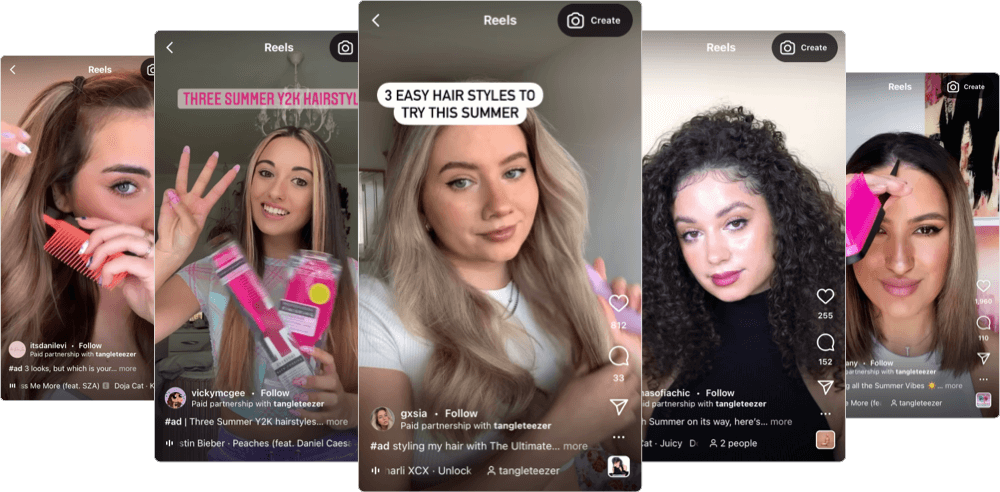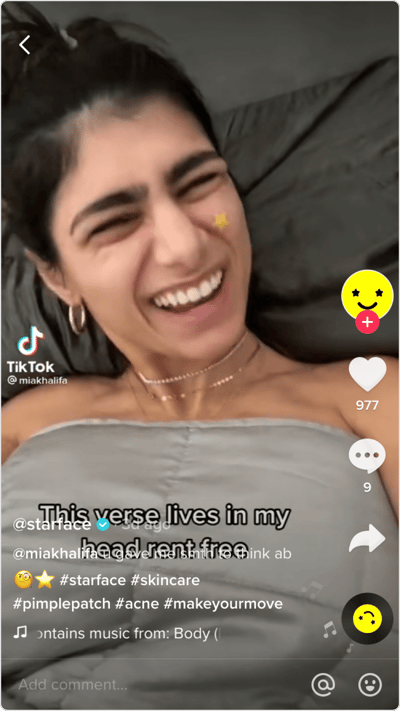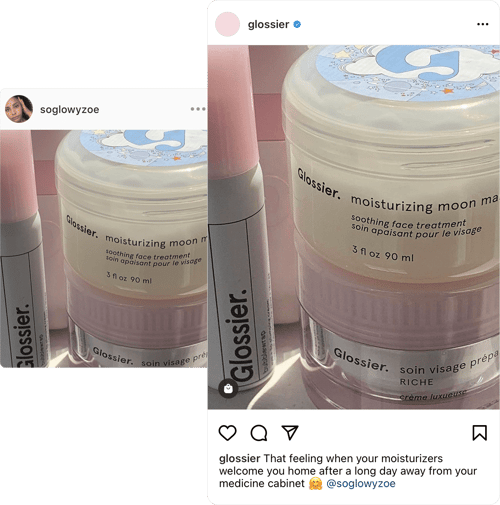Marketing to Gen Z can leave social experts scratching their heads. As the generation born between 1996 and 2010, Gen Z are tech-savvy and socially-minded. They’re also creative and know their way around internet trends, more than any other generation today.
In fact, Gen Z are the ones who inform and influence a lot of social and cultural shifts, which is part of what makes marketing to Gen Z such a puzzle. How do you connect with a generation of people who’ve never known a world without social media, who have had smartphones since they were kids, and who crave authenticity from the brands they interact with?
What does Gen Z want?
It’s easy to assume, and many people do, that teens are disconnected from reality, dependent on social media, overly sensitive and entitled. In reality, they’re actually way more engaged with the world than the generations before them.
Gen Z has grown up with internet access in its pockets, in an age dominated by the 2008 recession, President Trump and now a global pandemic.
Growing up in an uncertain climate, and given a platform to share their voices with the world, Gen Z has become an opinionated generation, driven to solve the world's problems. They still love a good meme, and go wild for a viral trend, but deep down are strongly influenced by their ethics and principles.
Of course, this informs their interaction with brands.
They’re more likely to buy from and be loyal to brands whose values align with their own, and who have a strong online presence.
Gen Z-ers want to buy from brands that reflect their identity
They put their money where their mouth is, and let their values dictate their decisions. This is why it’s important, when marketing to Gen Z, to establish a clear mission statement for your brand. Be transparent about your values, practices and ethics.
70% of Gen Z-ers try to purchase from companies they consider ‘ethical’. They want to support businesses that are actively trying to make life on earth a little better for everyone.
This means you need to be open about how your business operates. We know that the younger generations do their research when it comes to brands. In 2020, nearly half of all internet users used social media to search for brand information, a percentage that increases the younger a demographic is.
Before investing in a product or service, Gen Z will do a deep dive into the company’s website, social presence, comments and reviews. We’ve seen what happens when brands don’t adhere to social standards, and how quickly young people move to boycott and ‘cancel’ brands that slip up.
The key takeaway? Promote your values and principles
There are many ways for brands to prove they are trustworthy.
Offer data and user privacy statements, and be transparent about your practices and your supply chain. Support your employees and get involved with social issues that are important to you. These are just some of the ways to garner the trust and engagement of Gen Z.

Video as a Gen Z marketing channel
While some may dismiss Gen Z as having short attention spans, that’s just one perspective. Another view would be that Gen Z is attuned to quality content.
That’s why it’s important to create an online brand presence that Gen Z will identify with and want to be part of. And what’s the best way to get their attention? In 2021, it has to be video.
The most popular social platforms among Gen Z are Instagram, YouTube, Snapchat and TikTok – three of these four are almost exclusively for video content. So here’s what you need to know.
Gen Z can sniff out video marketing a mile off
Gen Z has grown up online, and as a result, they’ve been on the receiving end of digital marketing for almost their entire lives.
They know when they’re being sold to and they can easily distinguish good marketing from bad. The brands that have found success on TikTok and Instagram have done so by creating fun, playful content that fits in with the other, user-generated videos on Gen Z’s feeds.
Gone are the days of sleek, polished, heavily edited branded posts. Instead, they look to brands like Starface, a skincare company that’s had huge success on TikTok. Their videos are fun and informative—the kind of content that their audience is already consuming and creating. If your TikToks are too curated and pre-planned, it's going to come off as inauthentic. Your aim? Give them a reason to keep watching.
Meet Gen Z where they already are
Gen Z uses different social media platforms for different purposes. They share and receive different content depending on where they are. Instagram is for their aspirational selves, Pinterest is for dreaming about their future, TikTok is for expressing their creativity and Snapchat is for staying in contact with close friends. Facebook, if they’re even on there, is for news and information.
Have a think about the message you’re trying to convey and the way you want them to perceive your brand. This will help you determine which platform is best to invest your time on, and what kind of content you create.
Social media is making Gen Z more community-minded
While Gen X and Millennials grew up being warned about stranger danger, Gen Z knows the value of being connected with new communities. Social media means they can find people all over the world who share their experiences and identities. A 2018 study found that Gen Z are the loneliest of any generation, and they turn to the internet to ease that.
Interestingly, two-thirds of Gen Z-ers surveyed believe that communities are created by causes and interests, and not by economic backgrounds or educational levels. Brands can seize this community spirit in Gen Z by creating a space where followers interact with each other.
A 2019 Spotify study also found that 62% of Gen Z-ers and Millennials believe brands have the power to create communities based on common interests and passions, so you’ve got their support!
Look at brands like Glossier, who have built a huge following on social media in the last few years. They have a simple approach and are willing to let their audience drive the tone and style of their content. They source photos from their users and are in constant contact with their followers. As a result, they have curated an aspirational, yet achievable, aesthetic.
With a little strategy, you can do the same. Gen Z is plugged in and endlessly creative, so why not hand the reins over to them? Rather than viewing them as passive consumers, flip the script and allow them to help shape your messaging. Having your followers be a part of your marketing is a surefire way to get them engaged.
Influencers should be part of any brand’s Gen Z strategy
Studies continue to show that most social users, especially younger generations, trust influencers more than they trust brands.
A little over 76% of Gen Z say they follow an influencer on social media, while one in four Gen Z women say that they learn about new products or brands from the influencers they watch.
Influencers live and breathe social media. They’ve invested time and energy into building a highly engaged audience who trust their recommendations and are likely to follow their lead. Micro-influencers, those with a following under 100,000, can often be more effective advocates for your brand than celebrities or mega influencers. A smaller audience usually means they’re more engaged and interested in a specific niche.
Of course, you need to find the right ones.
TRIBE helps brands unlock instant branded content from skilled and influential creators who already use and love them, and therefore align with their aesthetic. New to influencer marketing? We can help.







